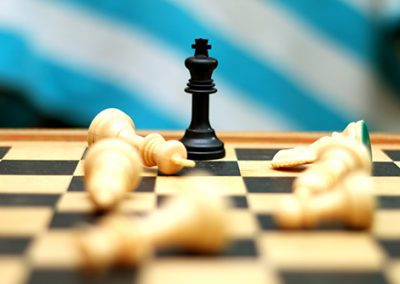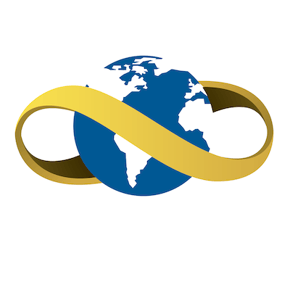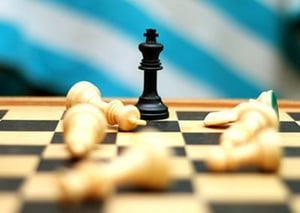For centuries, cultures throughout the world have written myths about a cosmic struggle between good and evil – and the importance of a hero or heroine who finds themselves drawn into the struggle.
This heroic figure must struggle against many internal temptations and external trials to win a spiritual victory on behalf of human kind.
Today this myth has not only resurfaced, but become the most popular series of books (and movies) in the English language – for example, J.R.R. Tolkien’s Lord of the Rings, JK Rowling’s Harry Potter, and George Lucas’ Star Wars.

The famous Swiss psychiatrist, Carl Jung (1875-1961) suggested that this myth of “a hero in the cosmic struggle between good and evil” is not only a popular theme in literature, but it is present to all of us in our unconscious mind.
Since the time of our childhood we seem to be aware not only of good forces (who protect us) and evil forces (like boogey-men) who seek to harm us, but also of a personal call from the side of good to be a hero or heroine in this cosmic struggle.
Jung noticed that young children not only want to imitate “superheroes,” but that they are also willing to be courageous in their pursuit of good over evil.
This interior myth not only inspires us, it provides many of the symbols that we use in our dreams – such as great mother, father, child, devil, god, wise old man, wise old woman, the trickster, and the hero.
Jung was fascinated by the fact that no one teaches children from virtually every culture about these symbols, but they seem to know them interiorly and instinctively, and their dreams (and art) are filled with them.
If no one teaches children these symbols, how do they come to know them? Jung believed that we are born with them in what he called “our collective unconscious.”
Many thinkers believe that this myth and its symbols are inspired by a spiritual reality – like God.
J.R.R. Tolkien put it this way:
No, they are not lies. Far from being lies they are the best way—sometimes the only way—of conveying truths that would otherwise remain inexpressible.
We have come from God and inevitably the myths woven by us, though they contain error, reflect a splintered fragment of the true light, the eternal truth that is with God.
Let’s suppose that William James, Rudolf Otto, Mircea Eliade, Carl Jung, and J.R.R. Tolkien – among many others – are not completely wrong.
This would mean that all of us have some kind of an awareness of a mysterious spiritual power which is the key to life’s meaning and destiny. This awareness is at once fascinating, beyond us, inviting, and illuminating. It is the source of our interest in religion and our quest for purpose and destiny beyond this life and this universe. It is fundamentally good, true, and loving, but it is not the only spiritual power in this world.
There are other spiritual powers which are evil which contend against it – and so we – as spiritual beings are invited to join it – even heroically – to help the side of cosmic good over that of cosmic evil. We have free will, and so we are not forced to enter into this struggle.
We can choose to sit on the sidelines – or even act against the power of cosmic good – joining forces with cosmic evil.
So far, we have explored the first three indications of an interior sense of transcendence found in all human beings, and come up with some very important conclusions.
Next, you can breeze through an introduction to the fourth through the eighth indications, each of which represents one of the five transcendentals.

